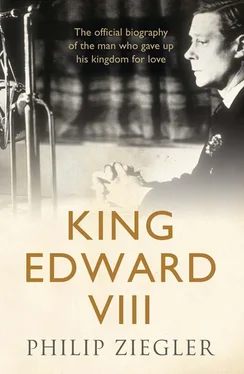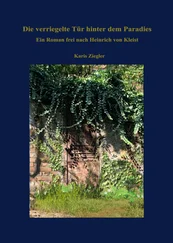It cannot be said that Oxford widened his cultural horizons. ‘We listened to classical music till 10.00. It was very dull,’ he wrote gloomily in his diary; and again after the Russian ballet, ‘That form of entertainment, like most stage things, leaves me stone cold.’ 133Nor did he become a reading man. His tutors constantly praised his efforts but pointed out that his knowledge was too superficial; ‘he must read more and think more for himself which is most necessary in his position,’ was his mother’s verdict. 134‘Bookish he will never be,’ wrote Warren in an otherwise unctuous article in The Times . Unsurprisingly, he went on: ‘The Prince of Wales will not want for power of ready and forcible presentation, either in speech or writing.’ 135Lord Esher had long talks with the Prince at Balmoral and found: ‘His memory is excellent and his vocabulary unusual, and above all things, he thinks his own thoughts.’ 136(The compliments were not returned. The Prince wrote of Esher: ‘That man has a finger in every pie and one cannot trust him.’ 137) A quick mind, a retentive memory, considerable curiosity, facility for self-expression: they were not everything but they were a lot.
The Prince admitted he owed something to Oxford but he was never fond of it nor ceased to think he would be better off in the Navy. His diary is pitted with groans about the awfulness of his life, increasing in violence as his second year wore on: ‘I’m absolutely fed up with the place and it has got on my nerves’; ‘It is pretty rotten to be back here’; ‘Back again in this hole!’ 138Warren pressed him to stay on for another term and get a degree. ‘The answer to the 1st is NO and the second doesn’t interest me at all!!’ 139At least in the spring and summer vacations of 1913 he escaped, both from Oxford and from his parents, to visit Germany. In later life he said that he had felt more at home in Germany than in France, ‘because there I stayed mostly among relations’. 140His diary suggests that he enjoyed himself more because he was that much older and had correspondingly greater liberty. Cadogan replaced Hansell and saw himself more as companion than as tutor, while Professor Fiedler, who was also in the entourage, was a ‘jolly old chap’ who was easily disposed of. Once in Berlin the Prince locked the professor in the bathroom and escaped with a friend to sample the night life, giving the porter the key and saying that something seemed to be wrong with the lock. 141
His two longest stays were in Württemberg and Strelitz. He arrived at Württemberg in travelling clothes to find the King and his staff in full dress uniform, but soon settled in comfortably to this slow, sleepy court. Every day after a heavy lunch he and the King would drive around the city and adjoining countryside. At first the King would acknowledge the salutes of his subjects but ‘gradually movements of hand became shorter – eyes closed – all stopped – King sound asleep until horses pulled up at home and groom said “ Majestät, ist zu Hause .” 142There was no golf, no tennis, no fishing, one day shooting capercaillie – ‘It is a curious sport … but I am glad to have seen it’ – too much sightseeing and too many visits to the opera. ‘I am getting fed up with life here to say the least of it.’ He was taken to Das Rheingold – ‘such a waste of time’; Siegfried – ‘appallingly dull’; Der Freischutz – ‘not exciting’. 143The King perhaps took in more than his young guest realized. The Prince had enjoyed his visits to an officers’ mess and to the Daimler factory, he told Queen Mary, ‘but visiting Museums he did not seem to like quite so much’. 144
Possibly word of this visit got through to Neustrelitz, for the Grand Duchess Augusta wrote in some alarm to say that she feared the Prince would be bored, ‘there being no sports nor Games of any kind’. 145There was no reason to fear anything of the sort, replied Queen Mary firmly: ‘He is quite a contented person and never rushes about after amusement.’ 146Her brother Alge, future Earl of Athlone, who was there for the visit, was less confident: ‘Strelitz, as you can imagine, after a short time is more than a young person can stand. A week is enough for Alice and me.’ He found his nephew ‘a mixture of extreme youth and boyishness with the ways of a man over forty … We both, as everyone, liked him extremely. He is so liebenswürdig [lovable] and simple, too much so, he should now realize he is “The Prince” and not require so much pushing forward.’ 147
Berlin proved the most enjoyable of his visits, mainly because he was entrusted for his entertainment to a young attaché at the British Embassy, Godfrey Thomas, who took him to funfairs, night clubs and the Palais de Danse, ‘where we remained till 2.00. It is a large public place frequented by very doubtful women with whom you go and dance, but it is devoid of all coarseness and vulgarity. I danced a good deal …’ 148He spent one night with Kaiser Wilhelm II and was startled to find him seated behind his desk on a military saddle mounted on a wooden block. The Emperor ‘explained condescendingly that he was so accustomed to sitting on a horse he found a saddle more conducive to clear, concise thinking’. 149The Prince found his host unexpectedly easy to talk to and quite enjoyed his visit; 150the Emperor, according to the Prince’s future biographer, Hector Bolitho, considered his guest charming and unassuming but ‘a young eagle, likely to play a big part in European affairs because he is far from being a pacifist’. 151
The Prince must have been uneasily aware that wherever he went in Germany he would be sized up as a potential husband for unmarried daughters. The courts of Germany had provided so many spouses for the British royal family that it was reasonable to assume the precedent would again be followed. He had experienced his first taste of what he could expect when the Emperor’s daughter, Victoria Louise, visited London in 1911. The press reported rumours that an engagement was imminent. 152Dynastically it would have been most suitable and Princess Victoria Louise had many good points. A young maid of honour, Katherine Villiers, pronounced her wholly without good looks but with much sweetness and joie de vivre . 153The Prince himself found her ‘most easy to get on with’. 154But there is no reason to think that he or his parents gave any serious thought to marriage. Nor did Victoria Louise; she found the Prince ‘very nice’ but ‘terribly young, younger than he actually was’. 155
More real was the putative romance with Princess May, or more formally Caroline Matilda, of Schleswig-Holstein. The couple got on particularly well when they were staying together at Gotha. May was ‘such a nice girl’, Alge’s wife Alice reported, ‘much like the others only taller and very slim’. 156Her brother-in-law August Wilhelm, son of Kaiser Wilhelm II, was sufficiently encouraged to write directly to the Prince in June 1914 to suggest that a match should be made. The nineteen-year-old Prince consulted his mother and with some difficulty constructed a reply – ‘an awkward job’. 157His letter does not survive, probably he pleaded that he was too young to contemplate matrimony at the moment. The war put an end to the possibility but in 1915 he remarked rather wistfully to Godfrey Thomas, ‘Well, I could very easily have done worse.’ Thomas commented that, though Princess May’s teeth needed attention and her nose was too red, a dentist and a little powder would soon have put things to rights. ‘HRH was really very much attracted to her, and I am perfectly certain that if the War hadn’t come, it would have been brought off. It is difficult to see now who he will marry or when, but whoever it is, I know that he will often think with affectionate regret of Princess May as the might have been.’ 158
Читать дальше












